Engineered Hardwood Flooring in Toronto: Costs, Benefits, and Common Questions Answered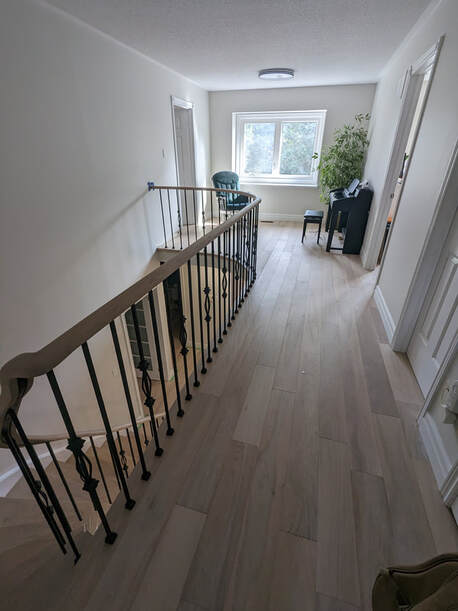 Elegant engineered hardwood flooring by Parqueteam Hardwood Flooring in a Toronto home. Elegant engineered hardwood flooring by Parqueteam Hardwood Flooring in a Toronto home. Engineered hardwood flooring has steadily risen in popularity among Toronto homeowners, and for good reasons. Unlike traditional hardwood, engineered hardwood is crafted with multiple layers, making it more stable, versatile, and often more affordable. Its unique construction allows it to withstand Toronto's varying climate, from humid summers to cold winters, without compromising on aesthetics or durability. Understanding The Costs of Installing Engineered Hardwood FloorsWhen considering engineered hardwood flooring, one of the primary concerns for homeowners is the cost. Several factors can influence the price:
Benefits of Engineered Hardwood Floors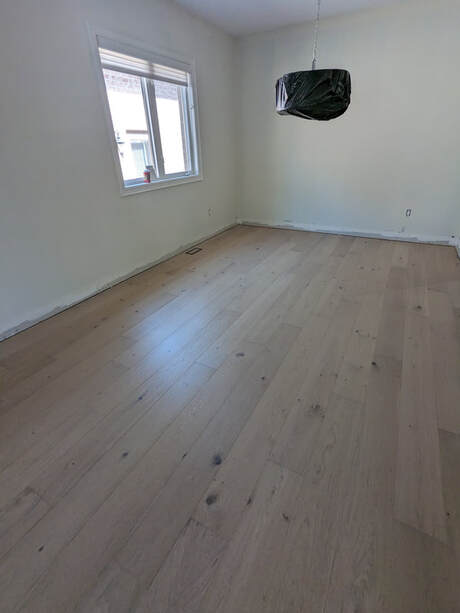 Detailed texture of engineered hardwood by Parqueteam Hardwood Flooring Detailed texture of engineered hardwood by Parqueteam Hardwood Flooring Engineered hardwood flooring isn't just a trend; it's a testament to modern flooring technology that combines the best of aesthetics and functionality. Here are some of its standout benefits:
Engineered Hardwood Floors vs. Solid Hardwood FloorsThe debate between engineered and solid hardwood is age-old, with each having its proponents. Here's a breakdown to help you understand the key differences and advantages of each:
Engineered Hardwood Flooring Installation ProcessThe installation of engineered hardwood flooring is a meticulous process that ensures the longevity and aesthetics of your floor. Here's a brief overview:
Maintenance and DurabilityEngineered hardwood flooring is renowned for its durability, but like all things, it requires care to maintain its luster and longevity. Here are some maintenance tips:
Engineered hardwood flooring offers a perfect blend of beauty, durability, and versatility, making it a top choice for Toronto homeowners. Whether you're renovating an old space or designing a new one, this flooring option promises longevity and style. At Parqueteam Hardwood Flooring, we're committed to delivering quality products and impeccable service, ensuring your home radiates elegance and warmth for years to come. FAQEngineered hardwood flooring is a popular choice among Toronto homeowners, but it's natural to have questions before making an investment. Let's address some of the most frequently asked questions:
0 Comments
Is Herringbone Hardwood Flooring Worth It?Herringbone hardwood flooring, with its intricate patterns and rich history, has become a coveted choice for homeowners and interior designers alike. This unique flooring style, characterized by its distinct zigzag pattern, offers a blend of tradition and modernity, making it a versatile option for various home décors. But is it worth the investment? Let's delve deeper into the world of herringbone hardwood flooring and uncover its charm. The Timeless Charm of Herringbone Hardwood Flooring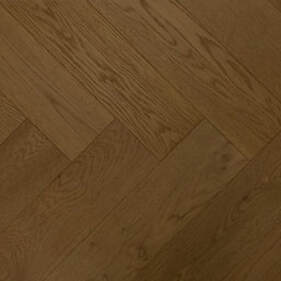 Hardwood Flooring Herringbone $9.99/square feet Hardwood Flooring Herringbone $9.99/square feet Originating from the Roman Empire, the herringbone pattern was initially used in road construction, with interlocking pavers providing a sturdy surface. The design soon found its way into the homes of the elite, symbolizing luxury and sophistication. Fast forward to today, and herringbone hardwood flooring has made a grand resurgence, becoming a staple in contemporary interior design. What sets herringbone apart from other flooring designs is its unique pattern. Each plank is laid in a manner that creates a broken zigzag, resembling the skeleton of a herring fish, from which it derives its name. This intricate design adds depth and dimension to spaces, making rooms come alive with character. Advantages of Herringbone Hardwood Flooring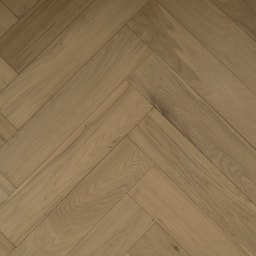 Hardwood Flooring Herringbone $9.99/square feet Hardwood Flooring Herringbone $9.99/square feet
Common Concerns and Misconceptions
Quality Indicators for Herringbone Hardwood Flooring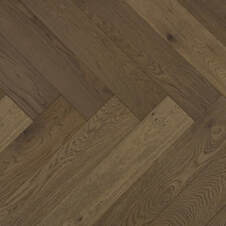 Hardwood Flooring Herringbone $9.99/square feet Hardwood Flooring Herringbone $9.99/square feet To ensure you're getting the best herringbone hardwood flooring, consider the following quality indicators:
Herringbone vs. Other Flooring Patterns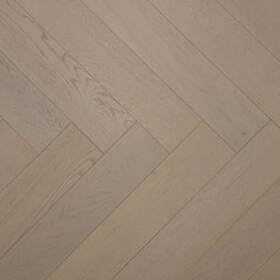 Hardwood Flooring Herringbone $9.99/square feet Hardwood Flooring Herringbone $9.99/square feet While herringbone holds its unique charm, how does it compare to other flooring patterns?
The Formality of HerringboneHerringbone, with its intricate design, often exudes a sense of formality and sophistication. But how formal is it really?
Addressing Common Concerns
Conclusion: Is Herringbone Hardwood Flooring Worth It?The decision to choose herringbone hardwood flooring ultimately boils down to personal preference and budget. Its undeniable charm, historical significance, and ability to elevate any space make it a worthy consideration for homeowners. While it might require a slightly higher investment, both in terms of material and installation, the end result is often a stunning floor that stands the test of time. For those in Toronto considering a flooring upgrade, Parqueteam Hardwood Flooring offers a range of options, including the ever-popular herringbone pattern. Whether you're leaning towards solid hardwood flooring or engineered hardwood flooring, the experts at Parqueteam can guide you through the process, ensuring a result that aligns with your vision. FAQ1. What is herringbone hardwood flooring? Herringbone hardwood flooring refers to a specific pattern of laying hardwood planks in a zigzag pattern, resembling the bones of a herring fish.
2. Is herringbone flooring more expensive than traditional patterns? Due to its intricate pattern and the precision required for installation, herringbone flooring can be more costly than standard plank layouts. 3. Does herringbone flooring add value to my home? Herringbone flooring, with its timeless appeal and luxurious look, can potentially increase the value of a home and make it more attractive to potential buyers. 4. How do I maintain my herringbone hardwood floor? Maintenance for herringbone is similar to other hardwood floors. Regular sweeping, occasional mopping with a damp cloth, and avoiding excessive moisture will keep it looking pristine. 5. Can I install herringbone flooring in any room? Yes, herringbone flooring can be installed in any room, from living areas to bedrooms. However, for areas with high moisture, like bathrooms, it's essential to choose a suitable finish and ensure proper installation. 6. Is herringbone pattern trendy or timeless? While the herringbone pattern has become increasingly popular in recent years, its historical roots make it a timeless choice that never goes out of style. 7. What type of wood is best for herringbone flooring? Herringbone flooring can be crafted from various wood types, including oak, maple, and walnut. The choice depends on personal preference, budget, and desired aesthetics. 8. Where can I get herringbone hardwood flooring in Toronto? Parqueteam Hardwood Flooring offers a wide range of herringbone hardwood flooring options suitable for various preferences and budgets. What is the Best Thickness for Engineered Hardwood Flooring?Choosing the right flooring for your home is a significant decision. It affects not only the aesthetics of your space but also its functionality and comfort. Among the myriad of flooring options available, engineered hardwood stands out for its blend of beauty, durability, and versatility. But with choices come questions: How thick should your engineered hardwood be? Does thickness impact the floor's performance? This article delves into the world of engineered hardwood flooring, answering these questions and more, ensuring you make an informed decision for your Toronto home. Understanding Engineered Hardwood Flooring: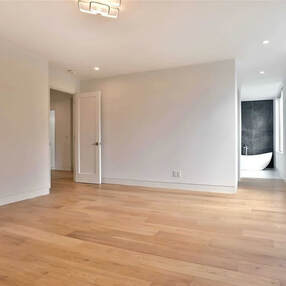 Engineered wood flooring toronto Engineered wood flooring toronto At its core, engineered hardwood flooring is a marvel of construction and design. Unlike solid hardwood, which is milled from a single piece of timber, engineered hardwood is composed of multiple layers. The top layer, known as the veneer, is a thin slice of real hardwood. This is what gives the flooring its natural and elegant appearance. Beneath this veneer are several layers of high-density fiberboard or plywood, providing stability and resistance to moisture. What sets engineered hardwood apart is its adaptability. It can be installed in areas where solid hardwood might not be suitable, such as basements or over radiant heating systems. The multi-layered construction offers resistance to changes in temperature and humidity, reducing the risk of warping or buckling. But not all engineered hardwood is created equal. The thickness of the veneer and the overall plank can vary, influencing the floor's durability and lifespan. To truly appreciate the importance of thickness in engineered hardwood, one must delve deeper into its implications for performance and longevity. For a more comprehensive understanding of engineered hardwood and its varieties, explore our detailed guide on Engineered Hardwood Flooring. The Significance of Thickness in Engineered HardwoodWhen it comes to engineered hardwood, thickness plays a pivotal role in determining the floor's durability and resilience. A thicker veneer layer allows for more frequent refinishing, extending the life of the floor. On the other hand, a thinner veneer might not support refinishing, making it essential to protect the floor from scratches and dents.
Benefits of Opting for a Thicker Engineered HardwoodChoosing a thicker engineered hardwood floor comes with a slew of advantages:
The Core of Engineered Hardwood: What Makes It SpecialThe core of engineered hardwood is what sets it apart from its solid counterpart. Comprising multiple layers of wood or plywood, this core imparts stability and resistance to the flooring. The quality of these layers plays a crucial role in determining the floor's overall performance.
Addressing Common QueriesLet's tackle some of the frequently asked questions about engineered hardwood thickness:
Disadvantages of Engineered Wood Flooring: A Balanced ViewWhile engineered hardwood offers numerous benefits, it's essential to consider its potential drawbacks:
Making the Right Choice: Factors to ConsiderChoosing the perfect engineered hardwood flooring involves considering several factors:
The Verdict: Is Thicker Always Better?When it comes to engineered hardwood flooring, thickness does play a pivotal role, but it's not the only factor to consider. A thicker veneer offers more refinishing opportunities, which can be a boon for homeowners looking for longevity. However, the core's quality, the type of adhesive used, and the installation method are equally, if not more, crucial. For instance, a thicker floor with a subpar core might not perform as well as a thinner floor with a high-quality core. Similarly, a well-installed thinner floor can outlast a poorly installed thicker one. It's all about striking the right balance and understanding the specific needs of your space. Engineered hardwood flooring offers a blend of beauty, durability, and versatility. While its thickness is an essential factor, it's just one piece of the puzzle. Toronto homeowners should consider all aspects, from core quality to installation methods, to make an informed decision. At Parqueteam hardwood Flooring, we pride ourselves on guiding our clients through every step, ensuring they choose the perfect flooring solution tailored to their needs. Whether you're leaning towards a solid hardwood floor or exploring laminate options, our team is here to help you navigate the world of flooring with confidence. FAQ1. What is engineered hardwood flooring? Engineered hardwood flooring consists of a real wood veneer on top and multiple layers of plywood or high-density fiberboard beneath. This structure provides added durability and stability compared to solid wood.
2. How does thickness affect the durability of engineered hardwood? Thicker floors generally offer better durability. They can withstand wear and tear more effectively and are less prone to denting from heavy furniture. 3. How important is the veneer thickness in engineered hardwood? The veneer's thickness is crucial for the floor's longevity. A thicker veneer allows the floor to be sanded and refinished multiple times, extending its life. 4. What is a good veneer thickness for engineered hardwood? A veneer that's at least 2mm thick is considered ideal for most residential settings, allowing for potential sanding and refinishing. 5. How does the core quality impact the floor's performance? A high-quality core, like plywood, ensures the floor remains stable over time, reducing the chances of warping or bowing. 6. Is a 3/8 inch engineered wood flooring recommended? 3/8 inch thickness engineered hardwood floor is a decent floor to have, and also can be cheaper option if budget is tight, but keep in mind the limitations of this thickness and long term durability of it, as most likely you won't be able to refinish this floor in the future due to it being very thin. 7. Does thickness play a role in sound insulation, especially in condos? Yes, thicker engineered hardwood floors can offer better sound insulation, making them a preferred choice in multi-story buildings or condos. 8. How can I determine the quality of engineered hardwood? Look for factors like a thicker veneer, a high-quality core material, and reviews or recommendations from a reputable manufacturer. 9. Is thicker engineered hardwood always the better choice? While thickness is essential, other factors like core quality, adhesive type, and installation method also play crucial roles in the floor's overall performance. 10. Where can I get expert advice on choosing the right engineered hardwood for my home in Toronto? Parqueteam Hardwood Flooring offers comprehensive guidance to Toronto homeowners, ensuring they select the best flooring solution for their specific needs. Glue Down Engineered Hardwood Flooring: Is It Any Good?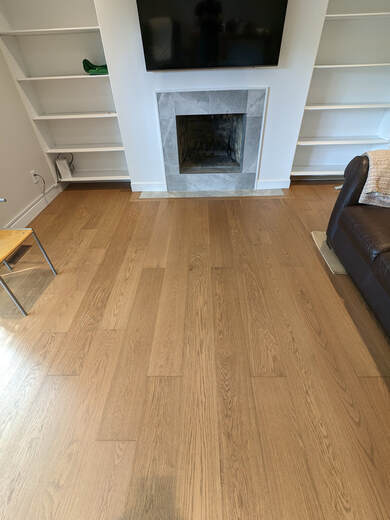 Close-up of engineered hardwood planks. Close-up of engineered hardwood planks. When it comes to flooring options, engineered hardwood flooring is a popular choice among homeowners in Toronto. This type of flooring combines the beauty of real wood with the practicality of a composite product. In this article, we will delve into the topic of glue down engineered hardwood flooring, answering common questions and providing valuable insights. What is Engineered Hardwood Flooring?Engineered hardwood flooring is a type of flooring that is made up of a top layer of real hardwood veneer adhered to a core of high-density fiberboard (HDF) or plywood. This construction makes engineered hardwood more stable than solid hardwood, especially in response to changes in temperature and humidity. This makes it a great choice for basements and over radiant heating systems, where traditional solid hardwood may not be suitable. You can learn more about engineered hardwood flooring on our website. Glue Down Method for Engineered Hardwood Flooring
Glue Down vs. Nail Down: Which is Better?When it comes to installing engineered hardwood flooring, there are two main methods: glue down and nail down. The glue down method, as we discussed earlier, involves adhering the flooring directly to the subfloor using a special adhesive. This method provides a solid, stable floor that feels more like a solid hardwood floor. On the other hand, the nail down method involves attaching the flooring to the subfloor using nails or staples. This method is typically used for solid hardwood flooring, but it can also be used for engineered hardwood. So, which method is better? The answer depends on your specific needs and circumstances. The glue down method provides a more stable floor, but it is more labor-intensive and permanent. The nail down method, on the other hand, is quicker and easier, but it may not provide the same level of stability. You can learn more about the different installation methods on our blog. Can Engineered Hardwood Flooring be Glued to Plywood?Yes, engineered hardwood flooring can be glued to plywood. In fact, plywood is one of the most common types of subfloor that engineered hardwood flooring is installed on. The glue down method works well with plywood because it provides a smooth, stable surface for the flooring to adhere to. However, it's important to note that the plywood must be properly prepared before the flooring is installed. This includes ensuring that the plywood is clean, dry, and level. Any irregularities in the plywood can cause problems with the installation and performance of the flooring. Is Glue Down Installation Better than Floating Installation for Engineered Wood Floors?
Underlayment for Glue Down Engineered Hardwood FlooringWhen it comes to underlayment for glue down engineered hardwood, there are two main options: direct glue down and double glue down. In the direct glue down method, the flooring is glued directly onto the subfloor. In the double glue down method, an underlayment (such as cork) is first glued to the subfloor, and then the engineered hardwood floor is glued on top of it. The double glue down method can provide additional sound insulation and comfort underfoot. How Long Before You Can Put Furniture on New Glued Down Engineered Hardwood Floors?After installing glue down engineered hardwood flooring, it's recommended to wait at least 24 hours before placing furniture on the new floors. This allows the adhesive to fully cure and ensures a strong bond between the flooring and the subfloor. However, the exact waiting time can vary depending on the specific adhesive used, so it's always best to follow the manufacturer's instructions. Glue Down Engineered Hardwood Flooring: Maintenance and LongevityEngineered hardwood flooring is known for its durability and long lifespan, but like any flooring, it requires proper care and maintenance to keep it looking its best. Maintaining your engineered hardwood flooring is relatively straightforward. Regular sweeping or vacuuming can help remove dust and debris that might scratch the surface. For deeper cleaning, use a damp mop and a cleaner specifically designed for hardwood floors. Avoid using excessive water, as it can seep into the cracks and cause damage. One of the advantages of engineered hardwood flooring is that it can be refinished if it becomes scratched or worn. However, the number of times it can be refinished depends on the thickness of the top veneer. Some high-quality engineered floors can be refinished multiple times, while others may only be able to be refinished once or twice. In terms of longevity, engineered hardwood flooring can last for decades with proper care. The exact lifespan will depend on factors such as the quality of the flooring, the amount of foot traffic it receives, and how well it is maintained. To ensure the longevity of your flooring, consider hiring professional hardwood flooring installers for the installation process. Professionals have the knowledge and experience to install the flooring correctly, which can help prevent issues down the line. In conclusion, glue down engineered hardwood flooring is a versatile and durable choice for your home. It offers the beauty of real wood with the added stability of engineered construction. Whether you're renovating your current home or building a new one, consider engineered hardwood flooring for a stylish and long-lasting flooring solution. For more information on engineered hardwood flooring and other types of flooring, check out our blog or contact us at Parqueteam Hardwood Flooring. We're here to help you make the best choice for your home. Please note that this article is intended to provide general information. For specific advice related to your situation, please consult with a professional. FAQ
Engineered Hardwood Flooring: A Comprehensive Guide for Toronto Homeowners
What is Engineered Hardwood Flooring?Engineered hardwood flooring is a type of flooring that is made up of a real hardwood veneer attached to a core constructed from multiple layers of wood, all laid in different directions. This construction method makes engineered hardwood more stable than traditional solid hardwood, especially in Toronto's variable climate. Understanding the Structure of Engineered Hardwood FlooringEngineered hardwood flooring is unique in its construction. Unlike solid hardwood, which is made entirely of a single piece of wood, engineered hardwood consists of a top layer of real hardwood veneer attached to a core of multiple layers of wood. These layers are laid in different directions, which gives engineered hardwood its stability and resistance to changes in temperature and humidity. The thickness of the top veneer layer can vary, but it's typically between 0.6mm and 6mm. The thickness of this layer can impact the lifespan of your engineered hardwood floor, as thicker veneers can be sanded and refinished more times than thinner ones. At Parqueteam Hardwood Flooring, we offer a variety of engineered hardwood flooring options with different veneer thicknesses to suit your needs. Benefits of Engineered Hardwood FlooringEngineered hardwood flooring offers several advantages over other types of flooring. Here are a few reasons why it's a popular choice for homeowners in Toronto:
Engineered Hardwood Flooring vs. Other Flooring OptionsWhen comparing engineered hardwood flooring to other types of flooring, such as laminate and vinyl, it's important to consider factors like cost, durability, and appearance. Engineered hardwood flooring tends to be more expensive than laminate or vinyl flooring. However, it's a long-term investment that can add value to your home. Unlike laminate or vinyl, engineered hardwood can be refinished if it becomes worn or damaged, extending its lifespan and making it a cost-effective choice in the long run. In terms of appearance, engineered hardwood flooring offers the beauty and warmth of real wood, which can enhance the aesthetic appeal of your home. While laminate and vinyl flooring can mimic the look of wood, they cannotmatch the depth and richness of real wood that engineered hardwood flooring provides. When it comes to durability, engineered hardwood flooring holds up well against daily wear and tear. While it can scratch, the ability to refinish the surface means it can look like new for many years. On the other hand, laminate and vinyl flooring can be more resistant to scratches but once damaged, they cannot be refinished and must be replaced. Engineered Hardwood Flooring vs. Laminate Flooring
Installation of Engineered Hardwood Flooring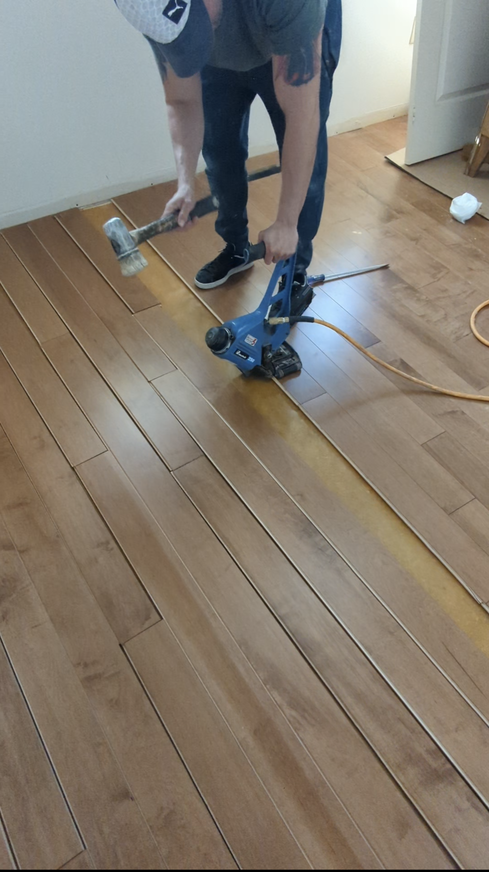 a professional installer meticulously laying down engineered hardwood planks, demonstrating the precision and expertise involved in the installation process. a professional installer meticulously laying down engineered hardwood planks, demonstrating the precision and expertise involved in the installation process. The installation of engineered hardwood flooring is a critical process that can significantly impact the performance and lifespan of your floors. At Parqueteam Hardwood Flooring, we offer professional engineered hardwood flooring installation services, ensuring that your floors are installed correctly and efficiently. There are several methods to install engineered hardwood flooring, including floating, gluing, or stapling. The choice of installation method depends on various factors such as the type of subfloor, the specific engineered hardwood product, and the conditions of your home. A floating installation is a method where the engineered hardwood planks are not attached to the subfloor but are instead attached to each other. This method is relatively quick and easy, making it a popular choice for DIY enthusiasts. The two options for floating install of engineered hardwood floors are: Click system and tongue and groove floating install. Gluing is another method where the engineered hardwood planks are adhered directly to the subfloor with a strong adhesive. This method provides a solid feel underfoot and can help with sound reduction. Nail-Down is a method where the engineered hardwood planks are attached to the subfloor using a special nailer and cleats to nail down the engineered hardwood floor.. This method is typically used when the subfloor is made of wood. Regardless of the installation method, it's crucial to ensure that the subfloor is clean, dry, and level before installation begins. This will help to ensure a smooth and successful installation process. The Cost of Installing Engineered Hardwood FloorsThe cost of installing engineered hardwood floors can vary depending on several factors, including the type of engineered hardwood product, the size of the area to be covered, and the complexity of the installation. As a general rule, you can expect to pay between $3 and $10 per square foot for materials, and between $2 and $8 per square foot for engineered hardwood flooring installation in the Toronto area. At Parqueteam Hardwood Flooring, we strive to provide high-quality engineered hardwood flooring at competitive prices. We also offer professional installation services, ensuring that your new floors are installed correctly and efficiently. Glue or Float: Which Installation Method is Better?One common question we often encounter is whether it's better to glue or float an engineered wood floor. The answer depends on several factors, including the type of engineered hardwood product, the conditions of your home, and your personal preferences. Floating is a method where the engineered hardwood planks are not attached to the subfloor but are instead attached to each other. This method is relatively quick and easy, making it a popular choice for DIY enthusiasts. However, floating floors may not feel as solid underfoot compared to floors that are glued or nailed down. Gluing, on the other hand, involves adhering the engineered hardwood planks directly to the subfloor with a strong adhesive. This method provides a solid feel underfoot and can help with sound reduction. However, it's more labor-intensive and requires a clean, dry, and level subfloor. At Parqueteam Hardwood Flooring, our team of experienced hardwood flooring installers can guide you in choosing the best installation method for your engineered hardwood floors. The Easiest Engineered Hardwood Flooring to InstallWhen it comes to the installation of engineered hardwood flooring, some products are easier to install than others. Engineered hardwood floors with a click-lock system are generally the easiest to install, as they can be floated without the need for nails or glue. This makes them a popular choice for DIY enthusiasts. However, for the best results, it's recommended to have your engineered hardwood floors installed by a professional. At Parqueteam Hardwood Flooring, our team of experienced hardwood flooring installers can ensure a smooth and efficient installation process, providing you with beautifully installed floors that will last for years. Engineered Hardwood Flooring and UnderlayAnother common question is whether engineered wood flooring needs underlay. The answer is yes, but only for engineered hardwood floors that are installed via the floating installation method. In this case, underlay is typically recommended to put under the installed engineered hardwood flooring. The underlay serves several purposes:
For engineered hardwood floors that installed via the nail down installtion method, an underlay is not needed. At Parqueteam Hardwood Flooring, we can advise you on the best type of underlay for your engineered hardwood floors, ensuring optimal performance and longevity. The Lifespan of Engineered Hardwood Floors
Do Engineered Wood Floors Scratch Easily?Like all types of hardwood flooring, engineered hardwood floors can scratch. However, the degree to which they scratch depends on several factors, including the hardness of the wood species used in the top veneer layer, the finish applied to the floors, and how the floors are used and maintained. To prevent scratches, it's important to keep your floors clean and free of dirt and grit, which can cause scratches. Using furniture pads, maintaining a suitable indoor humidity level, and avoiding walking on the floors with high heels or sports shoes can also help prevent scratches. If your engineered hardwood floors do get scratched, they can be sanded and refinished to restore their appearance. However, the number of times the floors can be refinished depends on the thickness of the top veneer layer. For Conclusion...Engineered hardwood flooring is a versatile and durable flooring option that offers the beauty of real wood with the practical benefits of man-made materials. Whether you're renovating your home or installing new floors, engineered hardwood flooring is a worthy consideration. We hope this comprehensive guide has provided you with valuable insights into engineered hardwood flooring. For more information on this and other flooring topics, be sure to check out our blog, where we regularly post articles to help you make informed decisions about your flooring needs. At Parqueteam Hardwood Flooring, we're committed to providing high-quality flooring solutions to homeowners in Toronto and the Greater Toronto Area. From hardwood flooring installation to hardwood flooring restoration and refinishing, we've got you covered. Contact us today to learn more about our services and how we can help you achieve the perfect floors for your home. Thank you for joining us on this journey into the world of engineered hardwood flooring. We look forward to serving you and helping you create the perfect floors for your home. FAQQ1: What is engineered hardwood flooring?
Engineered hardwood flooring is a type of flooring that is made up of a real hardwood veneer attached to a core constructed from multiple layers of wood, all laid in different directions. This construction method makes engineered hardwood more stable than traditional solid hardwood. Q2: How long do engineered hardwood floors last? On average, engineered hardwood floors can last between 20 to 30 years. However, high-quality engineered hardwood floors with a thick top veneer layer can last even longer, especially if they are well maintained. Q3: Do engineered wood floors scratch easily? Like all types of hardwood flooring, engineered hardwood floors can scratch. However, the degree to which they scratch depends on several factors, including the hardness of the wood species used in the top veneer layer, the finish applied to the floors, and how the floors are used and maintained. Q4: Is it better to glue or float an engineered wood floor? The answer depends on several factors, including the type of engineered hardwood product, the conditions of your home, and your personal preferences. Floating is a method where the engineered hardwood planks are not attached to the subfloor but are instead attached to each other. Gluing involves adhering the engineered hardwood planks directly to the subfloor with a strong adhesive. Q5: Does engineered wood flooring need underlay? Yes, an underlay is typically recommended for engineered hardwood flooring. The underlay serves several purposes, including acting as a moisture barrier, helping with sound reduction, and providing a softer feel underfoot. Q6: How much does it cost to install engineered hardwood floors? The cost of installing engineered hardwood floors can vary depending on several factors, including the type of engineered hardwood product, the size of the area to be covered, and the complexity of the installation. On average, you can expect to pay between $3 and $10 per square foot for materials, and between $2 and $8 per square foot for installation. Q7: Which is better, engineered hardwood or laminate? Both engineered hardwood and laminate flooring have their own advantages. Engineered hardwood offers the beauty and warmth of real wood, can be refinished if it becomes worn or damaged, and can add value to your home. Laminate flooring, while resistant to scratches and stains, is generally less expensive and can mimic the look of wood. However, it cannot be refinished and must be replaced if it becomes damaged. Q8: What is the easiest engineered flooring to install? Engineered hardwood floors with a click-lock system are generally the easiest to install, as they can be floated without the need for nails or glue. However, for the best results, it's recommended to have your engineered hardwood floors installed by a professional. Engineered vs Solid Hardwood in Toronto: Is Engineered Flooring Just as Good?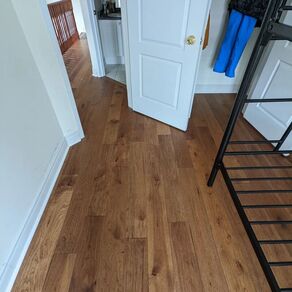 As a proud Toronto-based company specializing in all things related to hardwood flooring, we frequently encounter a question that many homeowners and property developers ask: "Is engineered hardwood just as good as solid hardwood?" This is an important question, especially for those of us in the Greater Toronto Area, where climate conditions can greatly impact the longevity and aesthetics of our floors. Understanding Hardwood Flooring: Solid vs. Engineered Before we delve into our main question, it's crucial to understand what we mean by "solid hardwood flooring" and "engineered hardwood flooring". Solid hardwood flooring is exactly what it sounds like: a flooring material made from a solid piece of hardwood. It's renowned for its timeless beauty, durability, and the value it can add to a property. Engineered hardwood flooring, on the other hand, is a layered product. The top layer is real hardwood, but it's bonded to several underlying layers of plywood or high-density fibreboard. This structure provides engineered hardwood with some unique benefits, which we'll discuss in more detail. The Merits of Engineered Hardwood FlooringEngineered hardwood flooring has grown increasingly popular in Toronto and the Greater Toronto Area, and for good reason. Here are some of the key advantages of engineered hardwood: 1. Stability: Engineered hardwood is less susceptible to warping and movement caused by changes in humidity and temperature. This makes it a great choice for areas where moisture levels can fluctuate, like basements or kitchens. 2. Versatility: Engineered hardwood can be installed over a variety of surfaces, including concrete and radiant heating systems, offering a flexibility that solid hardwood often can't match. 3. Variety: Because the top layer of engineered hardwood is real wood, it comes in as many species and styles as solid hardwood. You can find engineered versions of all your favourite hardwoods, from oak to maple to exotic varieties. Engineered vs Solid Hardwood: A Toronto Perspective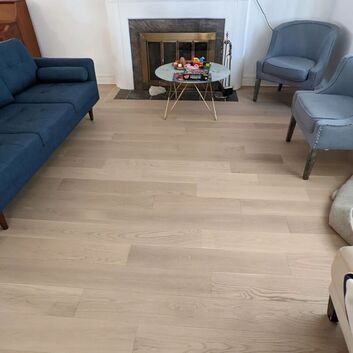 In the Toronto climate, where we experience both humid summers and dry winters, the stability of engineered hardwood can be a significant advantage. However, that's not to say that solid hardwood doesn't have its place. Solid hardwood flooring is often seen as the premium choice because of its potential for longevity. It can be sanded and refinished multiple times, which can keep it looking great for decades. Engineered hardwood can also be refinished, but the number of times depends on the thickness of the top layer. So, is engineered hardwood just as good as solid hardwood? The answer depends on your specific needs and circumstances. If you're looking for maximum longevity and have the right conditions to maintain it, solid hardwood is a fantastic choice. If you need something more versatile and stable, especially in areas with variable moisture or over concrete subfloors, engineered hardwood is likely the better option. In conclusion, both solid and engineered hardwood offer unique benefits and can be the "right" choice depending on your specific needs. As Toronto's hardwood flooring experts, we're here to help you make the best choice for your home or project. Don't hesitate to reach out to us with your hardwood flooring questions! Discover The Benefits of Engineered Hardwood Flooring in Toronto with Parqueteam Hardwood Flooring Ltd.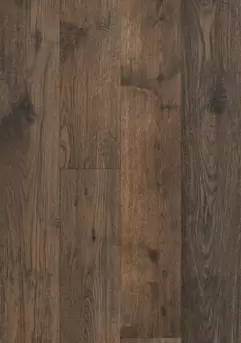 Looking for affordable and durable hardwood flooring in Toronto? Consider engineered hardwood floors from Parqueteam Hardwood Flooring Ltd. Engineered hardwood floors offer many benefits, making them the perfect choice for Toronto's unique climate and lifestyle. Here's a closer look at why engineered hardwood floors are the ideal choice in Toronto: 1. Durability Toronto's climate can be unpredictable at times, from hot and humid summers to cold and damp winters. Engineered hardwood flooring is designed to withstand these fluctuations without warping, cupping, or expanding, making them an excellent choice for Toronto homes and businesses. With the solid hardwood veneer on the top layer, you get the look and durability of solid hardwood at a fraction of the cost. 2. Cost-effective Engineered hardwood is a more affordable option than solid hardwood. It also requires less maintenance over time, making it a cost-effective and sustainable solution for most home and business owners in Toronto. With Parqueteam Hardwood Flooring Ltd, you can get high-quality engineered hardwood flooring at affordable prices, without compromising on style or durability. 3. Variety of Styles and Finishes With engineered hardwood flooring, you can choose from a wide range of styles, colors, and finishes to suit your taste and preferences. At Parqueteam Hardwood Flooring Ltd, we have a vast selection of engineered hardwood flooring options to choose from, so you can find the perfect fit for your Toronto home or business. 4. Easy to Install Installation of engineered hardwood flooring is quick and easy, minimizing disruption to your home or business. With a simple click lock installation system, you can have your new floor installed in no time. Plus, with Parqueteam Hardwood Flooring Ltd, our skilled professionals will take care of everything, from design and preparation to installation and cleanup. Conclusion Parqueteam Hardwood Flooring Ltd is your go-to source for high-quality, affordable, and durable engineered hardwood flooring in Toronto. Our experts are here to help you find the perfect flooring options for your home or business. Contact us today to get started with your flooring project! 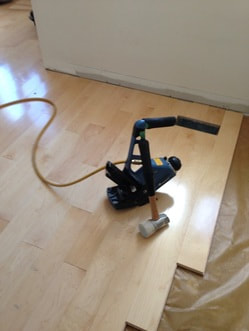 4. Easy to Install Installation of engineered hardwood flooring is quick and easy, minimizing disruption to your home or business. With a simple click lock installation system, you can have your new floor installed in no time. Plus, with Parqueteam Hardwood Flooring Ltd, our skilled professionals will take care of everything, from design and preparation to installation and cleanup. Conclusion Parqueteam Hardwood Flooring Ltd is your go-to source for high-quality, affordable, and durable engineered hardwood flooring in Toronto. Our experts are here to help you find the perfect flooring options for your home or business. Contact us today to get started with your flooring project! |
Parqueteam Hardwood FlooringHardwood Flooring Toronto and The Greater Toronto Area. Archives
December 2023
Categories
All
|
Areas We Produly Serving... |
|


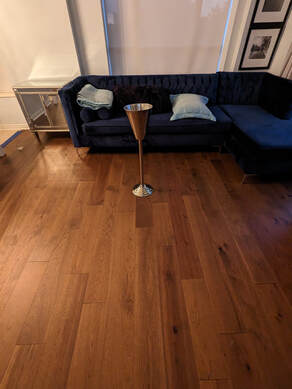
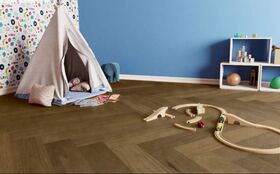
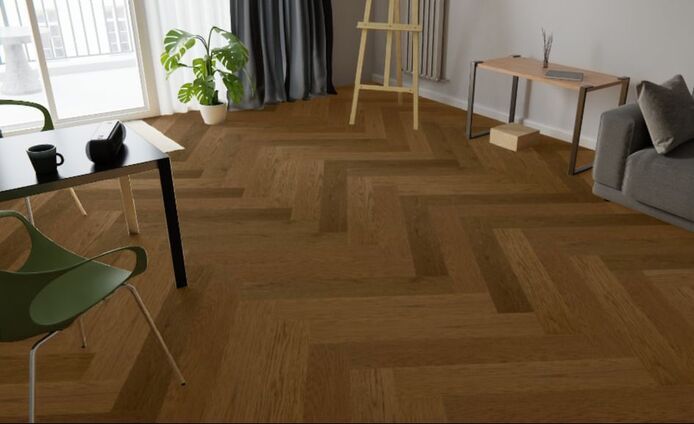
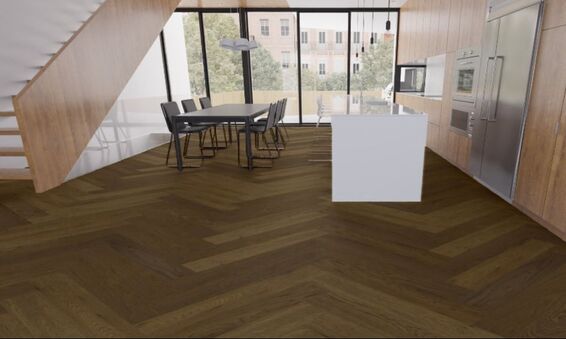
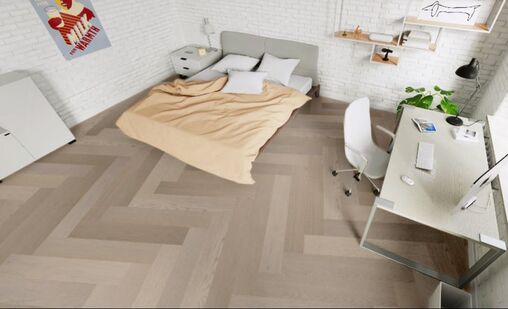


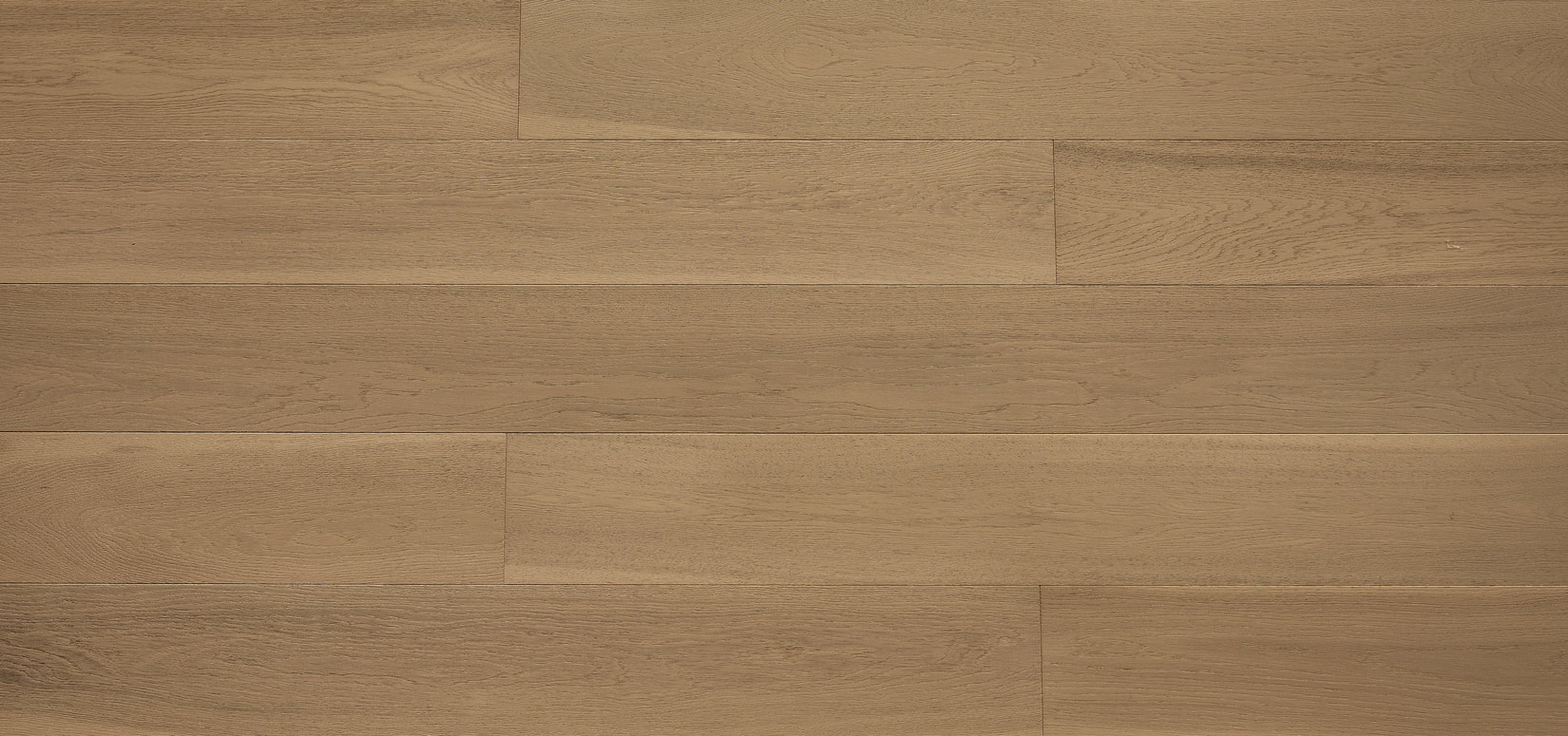
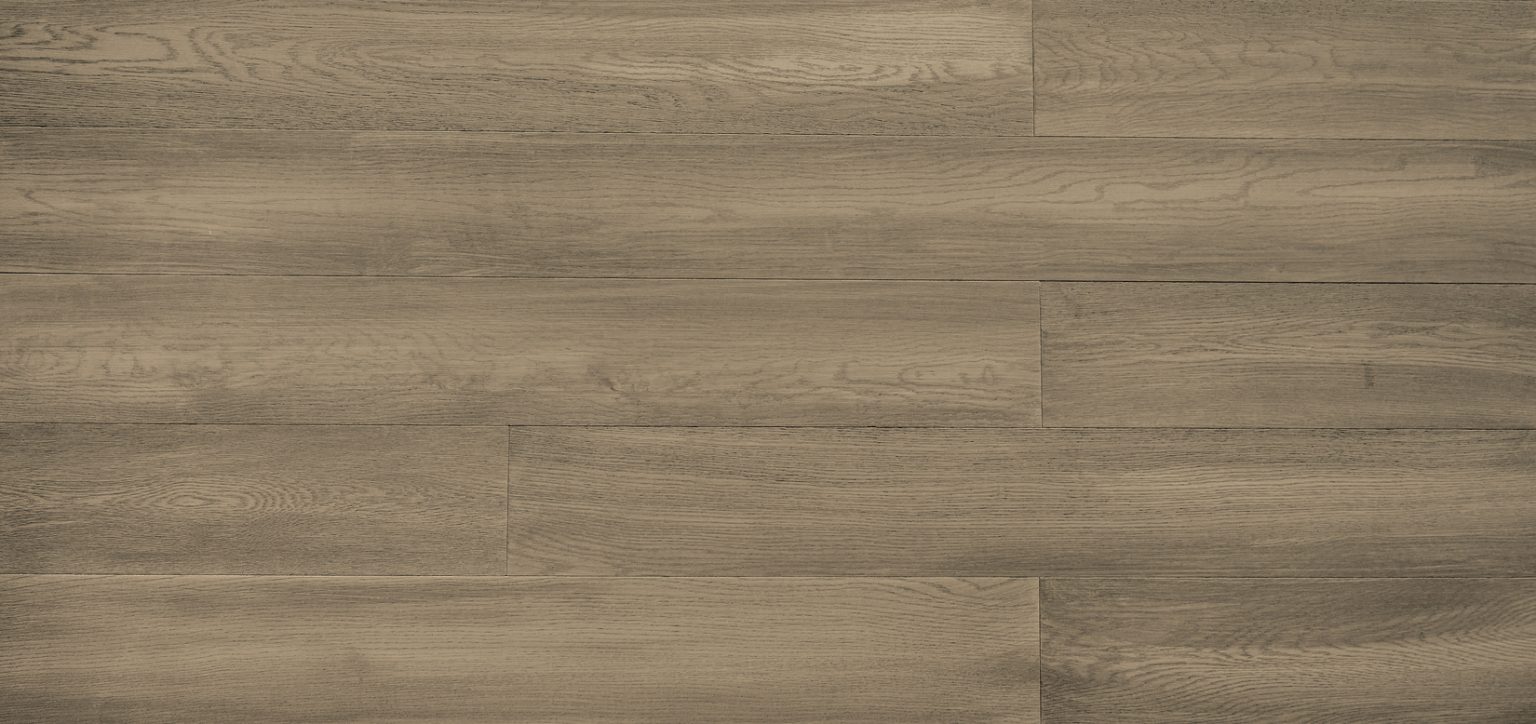
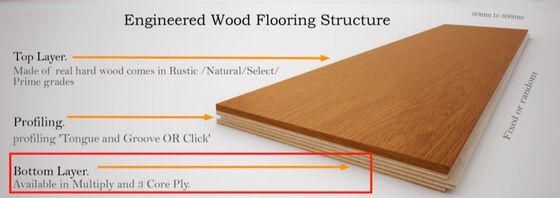
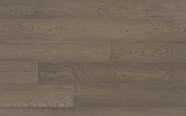
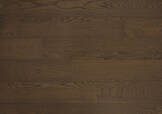
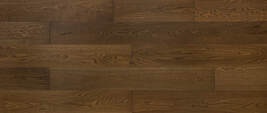
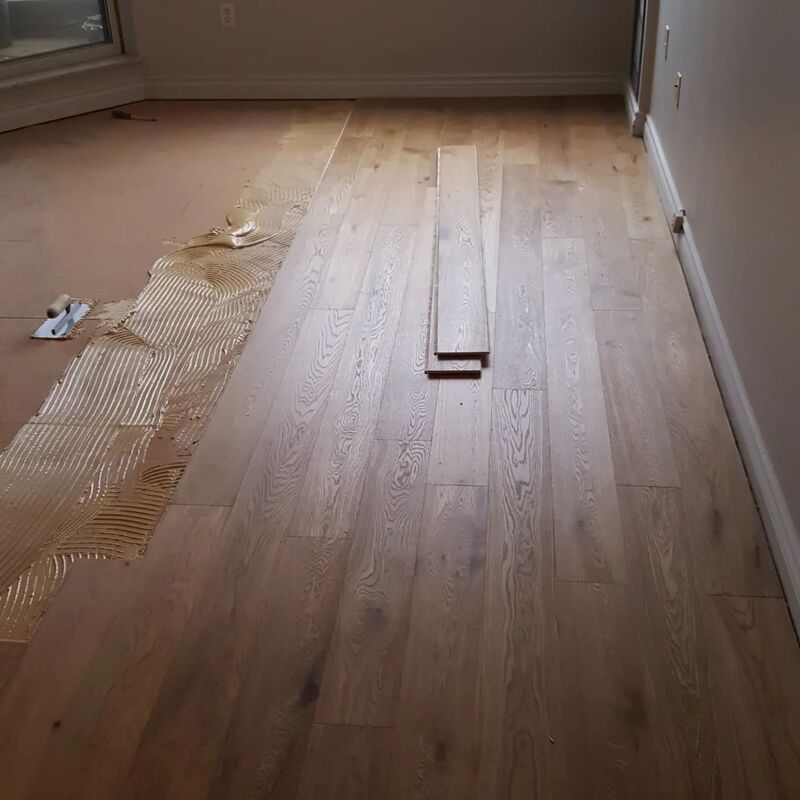
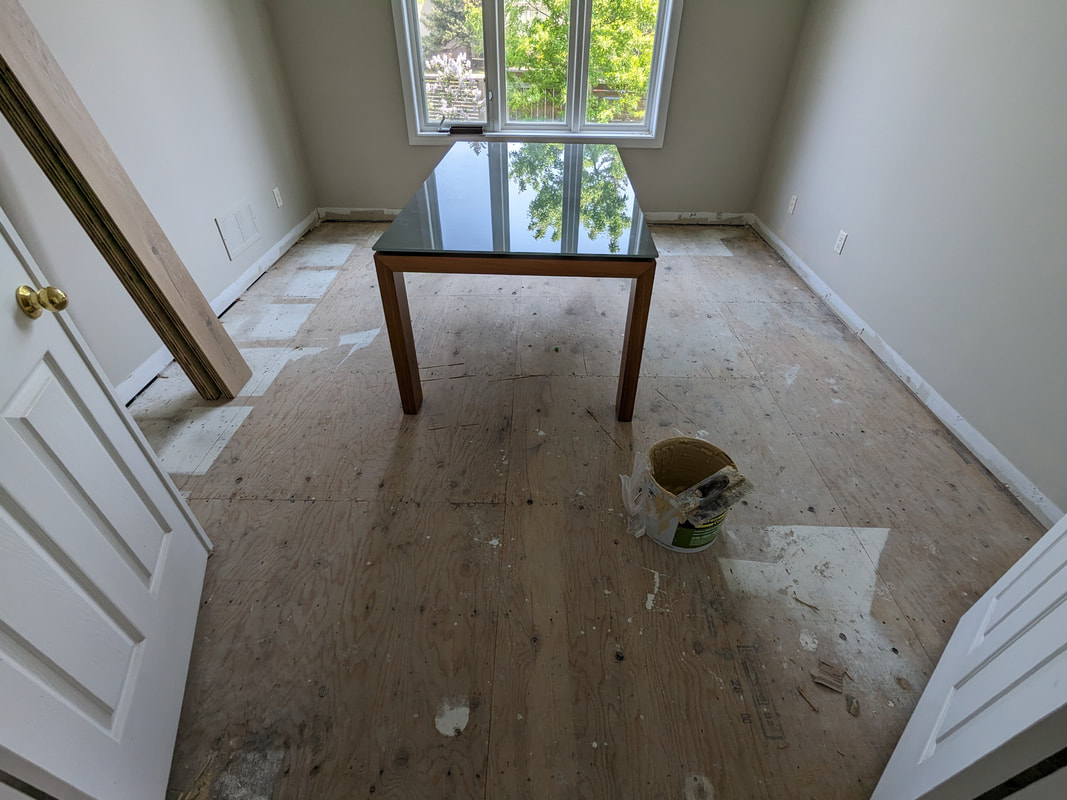
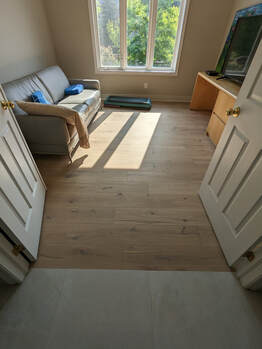
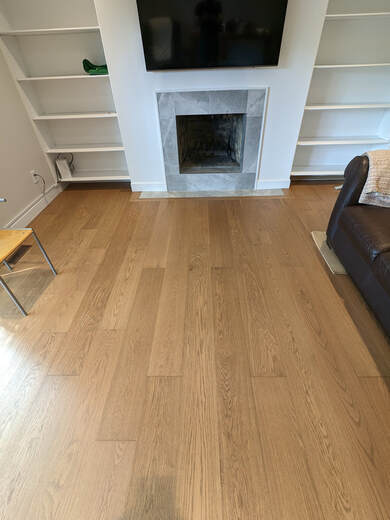
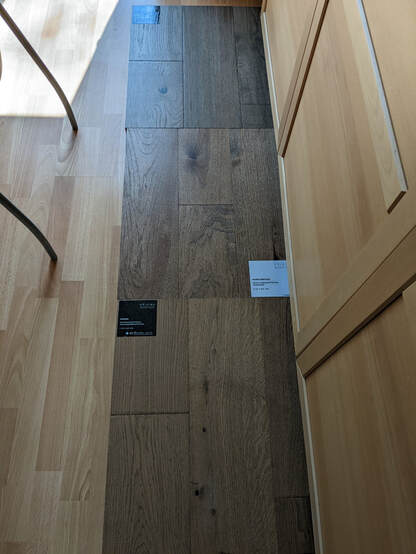
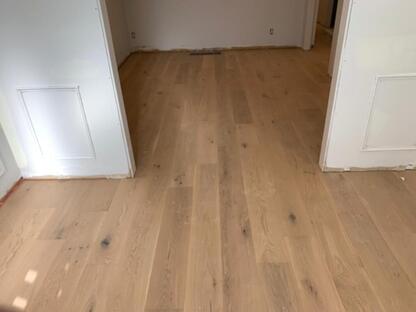
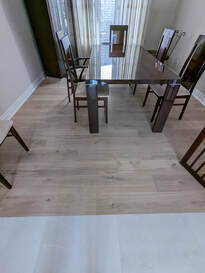
 RSS Feed
RSS Feed

